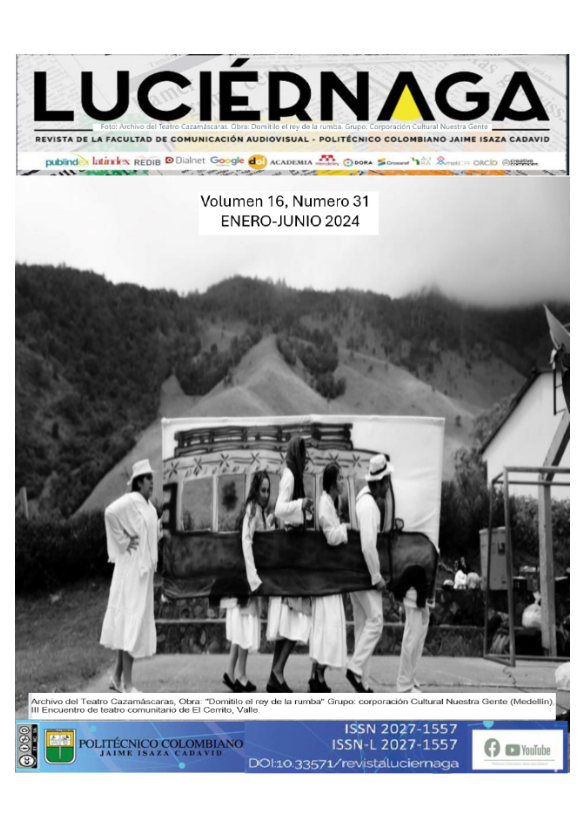Harry Potter Y Los Principios De Orientación Educativa Hacia La Construcción De Individuos Asertivos Y Con Visión De Trascendencia
Palavras-chave:
Orientacion educativa, persona humana, resiliencia, trascendencia, etica humanisticaResumo
El presente ensayo tiene como finalidad la argumentación para proponer la aplicación de los tips de la orientación evolutiva del adolescente, a través de la saga de Harry Potter desde las realidades presentes en el crecimiento humano. La visión ética, humanista y existencial de J. K. Rowling, la cual ha sido analizada en otros autores desde el punto de vista ético, gerencial y filosófico dan objeto epistemológico a este trabajo como una base para lograr esa orientación humanizadora, que se necesita, desde la integralidad de la persona humana en busca del sentido de trascendencia, resiliencia, ética humanista que se pretende fijar en los jóvenes, son visualizados en la historia desarrollada en los siete libros entre Dumbledore (orientador( y Harry Potter (orientado), visualizando el desarrollo de la adolescencia desde los 11 años hasta la adultez del personaje.
Métricas do artigo
Resumo: 285 PDF (Español (España)): 108Referências
Bisquerra (1998). La orientación. Editorial Planeta. Caracas
Cardenete, Pepi (2018). La filosofía que esconde Harry Potter periódico en línea). Se consigue en: https://www.diariodeleon.es/articulo/filandon/filosofia-esconde- harry-potter/201812230400021817315.html Consulta 02/09/2019
Donoso, Trinidad y Sánchez, Angelina (2013). Orientación educativa y profesional. Estudio de casos. Instituto superior de estudios psicológicos. Barcelona- España.
Esknov (2010). Resumen del libro “Si Harry Potter dirigiera General Electric” de Tom Morris. Essential Knowledge. USA.
Fuenmayor, Juan (1992). Historia de la filosofía del derecho. Ediciones de la Universidad Santa María. 10ma edición. Caracas.
Irwin, William y Basham, Gregory (2016). Harry Potter y la Filosofía.
Colección Libros Singulares. España.
Morris, Tom (2006). Si Harry Potter dirigiera General Electric. Editorial Planeta. Buenos Aires- Argentina.
Riaño, Peio (2010). Harry Potter leyó a Aristóteles (artículo en línea). Se consigue en: https://www.publico.es/culturas/harry-potter-leyo-aristoteles.html consulta 02/09/2019
Rowling, J. K. (1997). Harry Potter y la piedra filosofal. Editorial Salamandra. Barcelona- España.
Rowling, J. K. (1998). Harry Potter y la cámara secreta. Editorial Salamandra. Barcelona- España.
Rowling, J. K. (1999). Harry Potter y el prisionero de Azkaban. Editorial Salamandra. Barcelona- España.
Rowling, J. K. (2000). Harry Potter y el cáliz de fuego. Editorial Salamandra.
Barcelona- España.
Rowling, J. K. (2003). Harry Potter y la orden del Fénix. Schoolastic Press.USA.
Rowling, J. K.(2005). Harry Potter y el príncipe mestizo. Editorial Salamandra. Barcelona- España.
Rowling, J. K. (2007). Harry Potter y las reliquias de la muerte. Schoolastic Press. USA.
Savater, Fernando (2000). Ética para Amador. 35ta edición. Editorial Ariel.
Barcelona – España.
Tiffany, J y Thorne, J (2016). Harry Potter y el legado maldito. Editorial Salamandra. Barcelona- España.
Downloads
Publicado
Como Citar
Edição
Seção
Licença
Copyright (c) 2024 Nelson Henriquez

Este trabalho está licenciado sob uma licença Creative Commons Attribution-NonCommercial-ShareAlike 4.0 International License.
Aquellos autores/as que tengan publicaciones con esta revista, aceptan los términos siguientes:- Los autores/as conservarán sus derechos de autor y garantizarán a la revista el derecho de primera publicación de su obra, el cuál estará simultáneamente sujeto a una licencia de Creative Commons Atribución – No comercial – Compartir igual
que permite a terceros compartir la obra siempre que se indique su autor y su primera publicación en esta revista. - Los autores/as podrán adoptar otros acuerdos de licencia no exclusiva de distribución de la versión de la obra publicada (p. ej.: depositarla en un archivo telemático institucional o publicarla en un volumen monográfico) siempre que se indique la publicación inicial en esta revista.
- Se permite y recomienda a los autores/as difundir su obra a través de Internet (p. ej.: en archivos telemáticos institucionales o en su página web) antes y durante el proceso de envío, lo cual puede producir intercambios interesantes y aumentar las citas de la obra publicada. (Véase El efecto del acceso abierto)
- Luciérnaga-Comunicación no cobra tasas o cargos a Autores o colaradores por la recepción, revisión o publicación de artículos (APC -Article Processing Charges/ publication fee).













